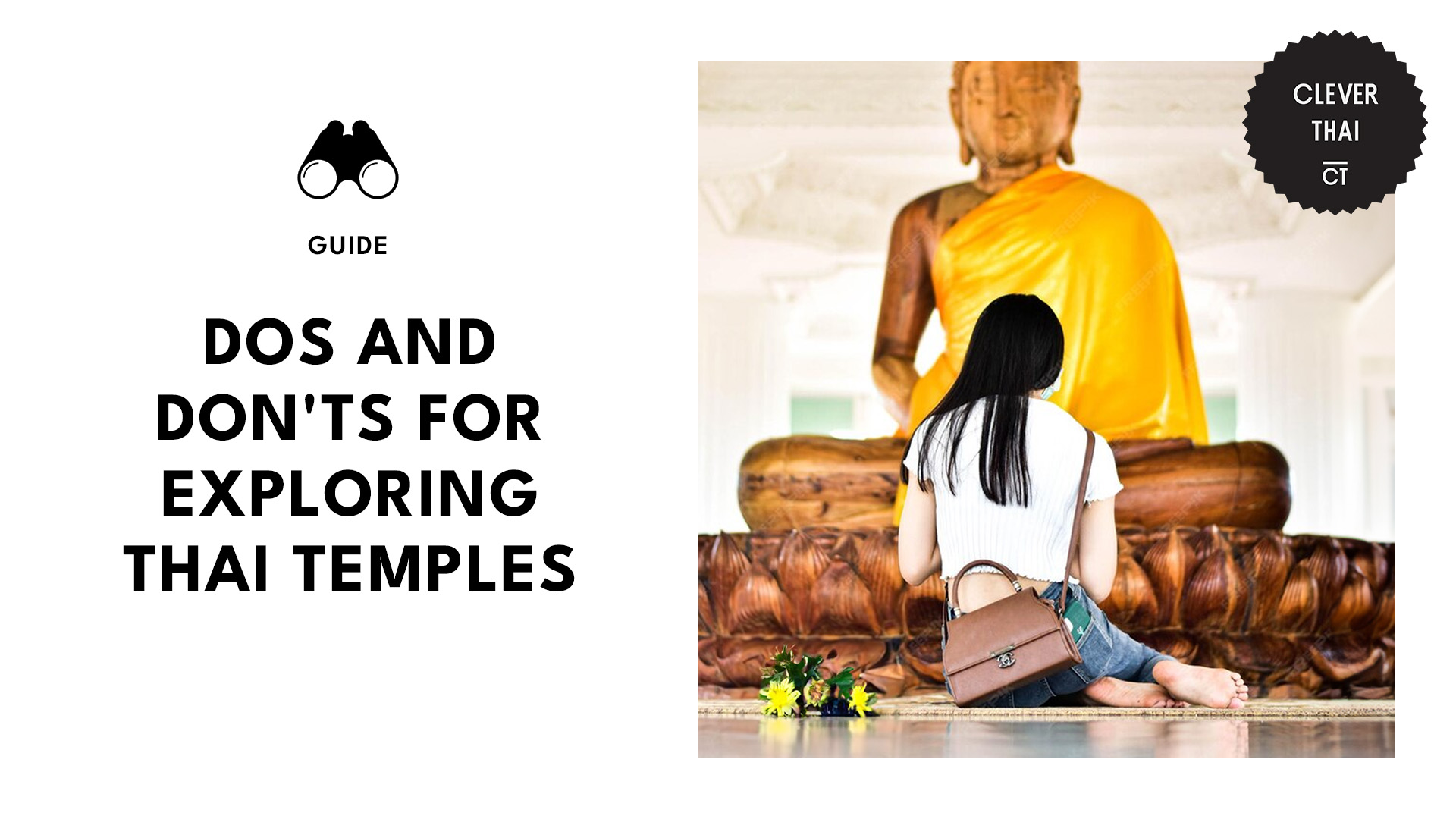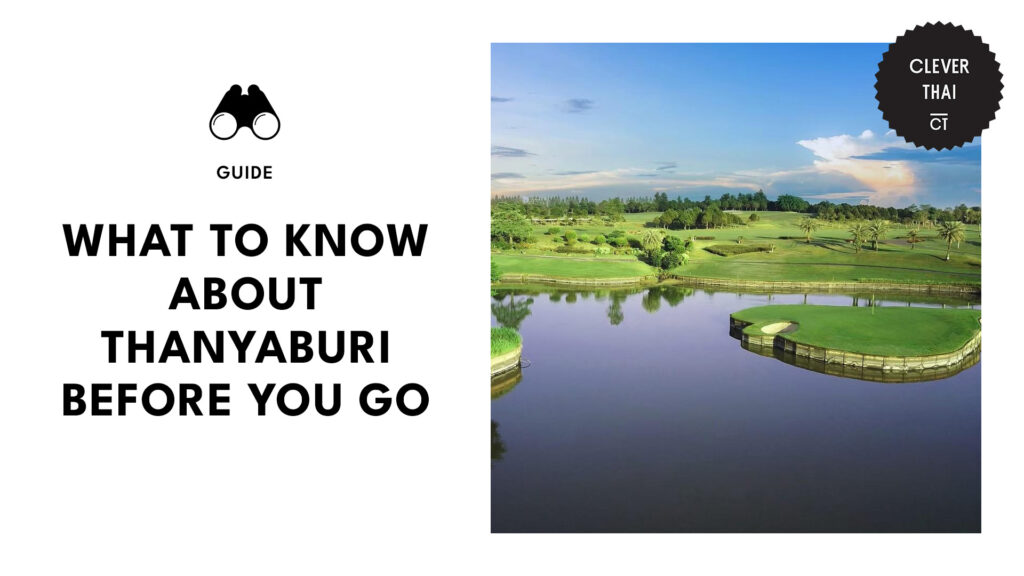Categories > Guides and Tips

The Dos and Don’ts You Need to Know When Visiting Temples in Thailand
- The Dos: What to Do When Visiting Temples in Thailand
- Dress modestly and respectfully
- Remove your shoes before entering temple buildings
- Show respect to Buddha images and relics
- Respect monks
- Observe silence inside the temple grounds
- Make a donation, if desired, for the temple's upkeep
- Follow photography rules and restrictions
- Avoid inappropriate behaviour
- Join respectfully in temple ceremonies and rituals
- The Don’ts: What NOT to Do When Visiting Temples in Thailand
- Point your feet towards Buddha images or monks
- Smoke or consume alcohol on temple grounds
- Step on door sills while entering temple buildings
- Display public affection
- Take selfies or pose inappropriately
- Demand special treatment in exchange for donations
- Offer food or items directly from your hand
- Engage in idle chatter or frivolous conversation
- Stand higher than monks
- Touch monks
Last year, I found myself closer to the divine than ever before—well, geographically, at least. As I roamed the vibrant streets of Thailand, the towering temple structures were impossible to ignore.
But as I quickly learned, there’s an art to temple visits here—certain dos and don’ts that every visitor should know to avoid sticking out like a sore thumb (or accidentally offending someone!).
So, if you’re planning to explore these sacred sites, here’s a little primer to ensure you respect the local customs and enjoy your visit without any faux pas. Let’s dive into the essentials of temple etiquette in Thailand!
The Dos: What to Do When Visiting Temples in Thailand
Dress modestly and respectfully
Media from gabiakrapovic
When visiting temples in Thailand, it’s essential to dress appropriately out of respect for the sacredness of the site. Opt for clothing that covers your shoulders, chest, and knees. Loose-fitting, breathable garments are ideal for the tropical climate.
Avoid wearing clothing that is revealing, tight-fitting, or otherwise inappropriate. This includes items such as short skirts, shorts, sleeveless tops, or clothing with offensive language or imagery.
Remove your shoes before entering temple buildings
Media from dreamsbecomewings
In Thai culture, it’s considered disrespectful to wear shoes inside temple buildings. Before stepping inside temple buildings, always remove your shoes as a sign of reverence.
This tradition is deeply rooted in Thai culture and signifies leaving the outside world behind while entering a sacred space.
Show respect to Buddha images and relics
Media from chasendatbrunch
Buddha images and relics are revered objects in Thai temples. When encountering them, maintain a respectful distance and offer a traditional gesture of reverence, such as a slight bow.
Also, refrain from touching or pointing at them. In Thai culture, such actions are considered disrespectful.
Respect monks
Media from thebaiphotography
When in the presence of monks, greet them with a wai—a traditional Thai gesture of respect. Place your palms together in a prayer-like position and bow slightly. This simple gesture acknowledges their spiritual authority and fosters a sense of harmony and goodwill.
Observe silence inside the temple grounds
Media from quockhiem_1309
Maintain a peaceful atmosphere by observing silence within the temple grounds. This allows visitors to reflect, meditate, and pay homage to the sacred surroundings without distractions.
Within temple grounds, it’s crucial to maintain a peaceful and contemplative atmosphere. Avoid speaking loudly or engaging in disruptive behaviour that may disturb monks, worshippers, or those seeking quiet reflection.
Make a donation, if desired, for the temple’s upkeep
Media from dhacastro92
Support the maintenance and preservation of Thai temples by making a donation, if you’re able. Contributions help sustain these spiritual centres, ensuring they remain accessible for future generations to experience and appreciate.
Follow photography rules and restrictions
Media from nanawiip
While photography is often allowed in temple grounds, be mindful of any rules or restrictions in place. Some areas may be off-limits to photography, particularly those containing sacred objects or during religious ceremonies. Always ask for permission when unsure.
There are also instances that you should avoid using flash photography inside temple buildings, as the sudden burst of light can be disruptive and disrespectful, especially during religious ceremonies or when near Buddha images and relics.
Flash photography may also damage delicate artwork or historical artefacts. Instead, opt for natural lighting or adjust your camera settings to capture images without flash.
Avoid inappropriate behaviour
Media from simonmigaj
As you explore the temple grounds, walk mindfully and with respect. Avoid rushing or making abrupt movements that may disturb others. Take your time to appreciate the temple and natural beauty of the surroundings while remaining mindful of other visitors.
Join respectfully in temple ceremonies and rituals
Media from fioosantoro
If you have the opportunity to witness temple ceremonies or rituals, do so with respect and reverence. Observe the proceedings quietly, follow any instructions given by temple staff or monks, and participate only if invited to do so.
Engaging with these rituals can provide a deeper understanding of Thai culture and spirituality.
The Don’ts: What NOT to Do When Visiting Temples in Thailand
Point your feet towards Buddha images or monks
Media from love__2travel
In Thai culture, the feet are considered the lowest and least sacred part of the body, while the head is the most revered. Pointing your feet towards Buddha images or monks is seen as highly disrespectful.
Instead, sit or stand in a position where your feet are pointed away from these sacred objects or individuals. If sitting on the ground, tuck your feet beneath you or sit cross-legged to ensure they are not pointing in their direction.
This gesture demonstrates reverence and mindfulness towards the spiritual significance of Buddha images and monks within the temple environment.
Smoke or consume alcohol on temple grounds
Media from sirsala.official
Temple grounds are sacred spaces dedicated to spiritual practice and reverence. Smoking or consuming alcohol within these premises is considered inappropriate and disrespectful.
Such actions not only violate the sanctity of the temple but also disrupt the serene atmosphere sought by those visiting for meditation or worship.
Instead, enjoy your meals outside the temple premises or in designated eating areas, if available. Many temples have nearby food stalls or restaurants where you can enjoy a meal before or after your visit. If unsure, ask temple staff for guidance on appropriate dining areas.
Step on door sills while entering temple buildings
Media from thailandvsglobe
In Thai culture, door sills are considered thresholds between the secular and sacred realms. Stepping on door sills while entering temple buildings is viewed as disrespectful and symbolically crossing boundaries.
Instead, step over the door sills rather than on them. This practice is based on the belief that door sills are sacred thresholds that mark the transition between secular and sacred spaces.
By stepping over the door sills, you show respect for the spiritual significance of the temple and its surroundings. Additionally, stepping over the door sills is a way to avoid accidentally damaging them, as they are often decorated with intricate designs or inscriptions.
Display public affection
Media from wandering__hills
Temple grounds are places of reverence and spiritual contemplation. Avoid displaying public affection such as kissing, hugging, or other intimate gestures. Such behaviour is considered inappropriate and disrespectful within the sacred confines of the temple. Instead, focus on quiet reflection and admiration of the surroundings.
Take selfies or pose inappropriately
Media from thailandonelove
Avoid taking selfies or posing inappropriately within temple grounds. While photography is often allowed for personal or educational purposes, remember to maintain a respectful demeanour. Refrain from making disrespectful gestures or poses that may be deemed offensive or inappropriate in a sacred space.
Demand special treatment in exchange for donations
Media from popsf
When making donations to temples, avoid expecting special treatment or privileges in return. Donations should be made out of genuine generosity and respect for the temple’s upkeep and the monks’ livelihood, rather than with the expectation of receiving personal benefits or favours.
Offer food or items directly from your hand
Media from shinalodon
If you wish to offer food or items to monks as a form of merit-making, place them in a designated offering bowl or tray rather than handing them directly. This gesture shows respect and humility towards monks and their ascetic lifestyle.
Engage in idle chatter or frivolous conversation
Media from studyabroadusac
Avoid engaging monks in frivolous or idle conversation. While it’s acceptable to ask questions about Buddhism or temple etiquette, respect their time and focus on meaningful topics related to spirituality or Thai culture
Stand higher than monks
Media from bangkok.explore and asiaexplore
Maintain a lower physical position than monks as a sign of respect. Avoid standing or sitting in a position where you are elevated above them. This gesture acknowledges the spiritual authority and higher status of monks within Thai society.
Touch monks
Media from bangkokguidesmile
Respect the personal space of monks by refraining from touching them. This includes avoiding physical contact such as handshakes or hugs. In Thai culture, touching monks, particularly by members of the opposite sex, is considered inappropriate and disrespectful





